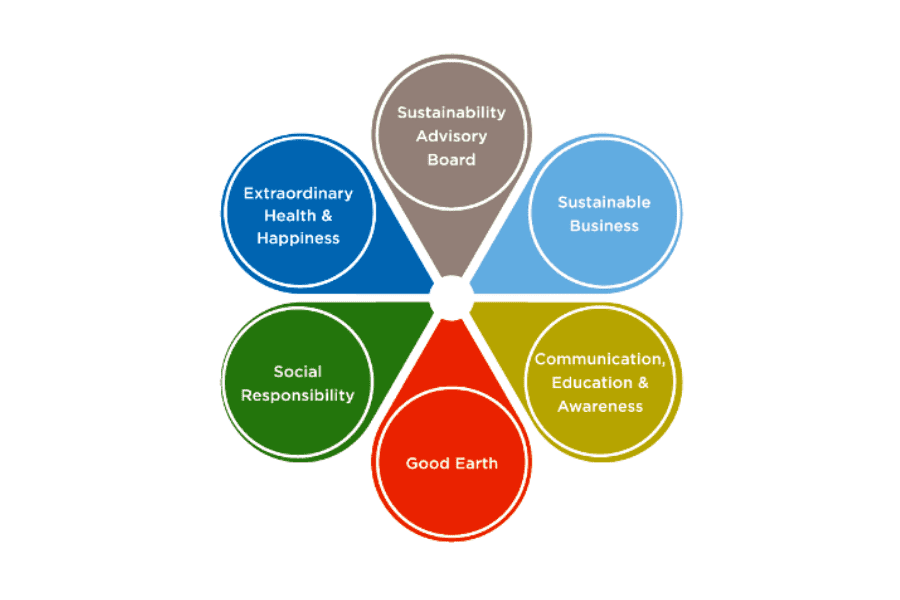Are your ideas on sustainability completely wrong?


Campbell Soup, Johnson & Johnson, General Mills, Adobe Systems. In addition to all being large, profitable American companies, they also have something else in common: They were all recently named among the world’s top 50 sustainable companies for 2015.
But sustainability efforts aren’t only for huge, multinational powerhouses. Even for small and mid-sized companies, taking small steps and setting realistic goals, can have a long-lasting positive impact on the environment, company culture and employee morale.
At Clarke, we started out small. But soon, big changes happened. In 2008, Clarke went through an organizational change and since then we have made a concerted, goal-based effort to use sustainability as the lens for improving business practices, products and services and pushing the boundaries on new products and how we support the communities we serve. Fact of the matter, it took us about 18 months to “figure it out”. Things fell into place and gained real momentum when we did two things: implemented our Sustainability Advisory Board and held an Appreciative Inquiry.
First, we defined sustainability broadly and set up an organization structure, called Project Greater Purpose, that lets employees relate to and get involved in areas of their interest. Project Greater Purpose is comprised of five focus areas: Sustainable Business, Communications, Education & Awareness, Good Earth, Social Responsibility, and Extraordinary Health & Happiness.
Second, in 2012 we held an Appreciative Inquiry which generated some massive initiatives.
Initially, we took care not to overreach—setting small goals for our organization that we knew would have a positive impact on the environment, as well as build confidence among employees around our commitment.
Here are a few of the early actions we took to achieve our sustainability goals:
o Shifted fleet vehicles to hybrids and/or more fuel efficient vehicles
o Transferred product applications delivery from treatment by truck to treatment by bicycle wherever possible.
o Converted paper documents to digital documents. (E.g. invoices, statements, proposals, bids, etc.)
o Revamped lighting in our plants and operations center to more efficient light bulbs and sensor systems.
o Focused reducing waste and how we disposed of it
Those moderate steps showed us we could move the needle in other areas of our business, such as reducing our carbon footprint. We also began involving a workplace element to our efforts:
o Implemented our Day of Caring program, where we close our offices during one workday and all employees go out into the communities we serve to volunteer.
o Created a Donation of the Month program in which we collect various items, such as clothing or canned goods, from Clarke employees and donate to community members in need.
o Established gardens at nearly every Clarke location that are tended by employees to grow fresh fruits and vegetables for employees to use.
o Encouraged biking and walking – whenever you need the break. Our office has bikes for employees to borrow during the day.
o Helped to develop a line of mosquito abatement products that are listed by the Organic Materials Review Institute (OMRI- listed) and thus safe to be used in and around organic farms and gardens.
o Launched our One for Tomorrow a program, which takes 1 percent of revenues from our NextGen products to support organizations that are striving to restore and protect the environment.
o Installed solar panels on electric Club Cars to further reduce our energy consumption.
At the end of our first 5-year set of goals we’ve successfully met four of seven goals.
Succeeding with sustainability doesn’t have to be a huge undertaking. In our case, small actions were the first step toward positively impacting the environment. The key is to find out what your company can be passionate about and then put together a plan and steps to define and reach larger goals. Give employees the ability and encouragement to engage. Clarke is successful in our sustainability efforts because our employees care so much about what we do to help the environment and community – without them our journey would not have been the same.
Becoming a more sustainable company is not only possible, it’s necessary and can be achieved with the right attitude and support.
Should you like more information on how we put our sustainability plans into motion, please contact jreiter@clarke.com.